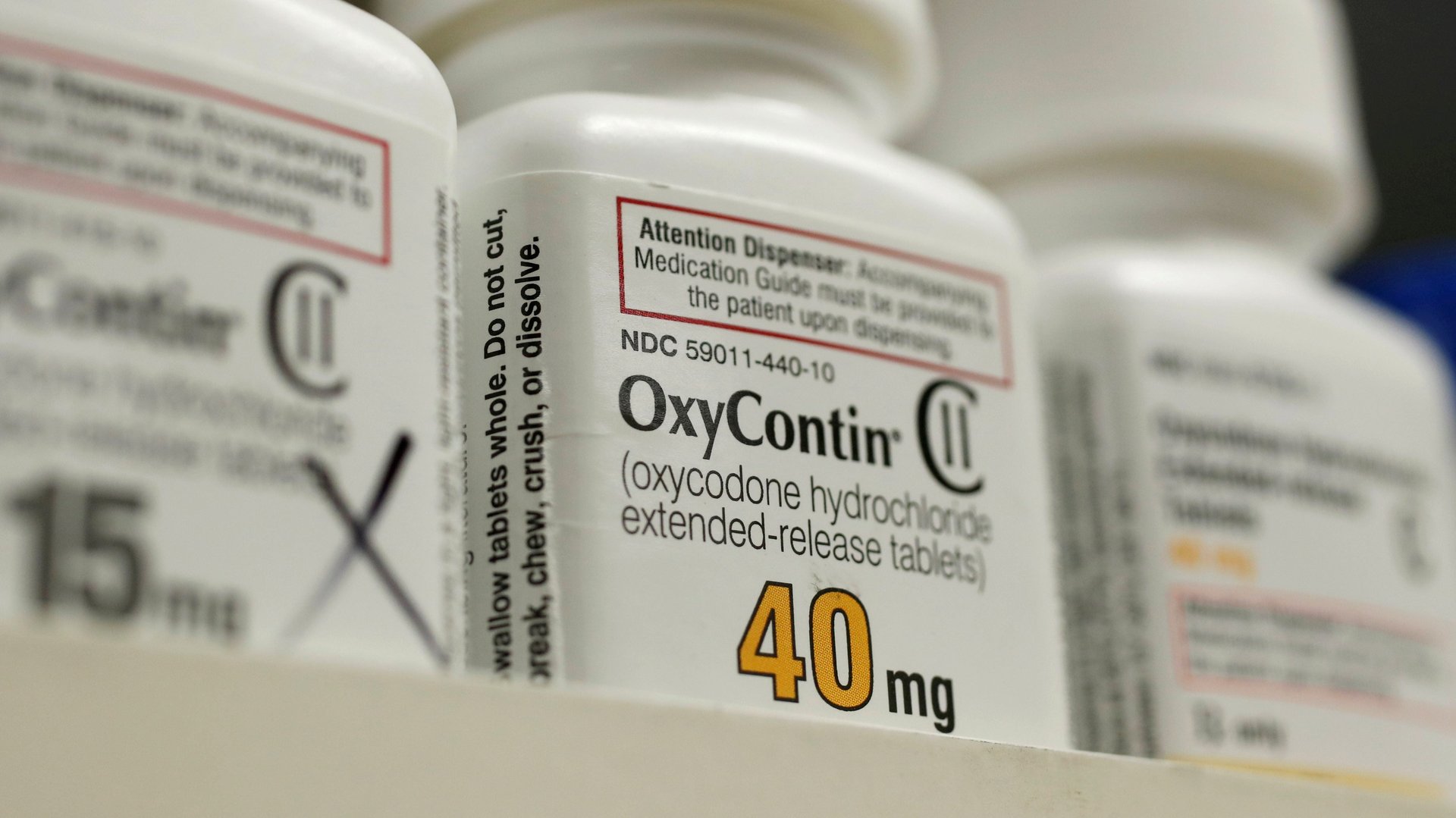The Sackler family may still be held accountable for their role in the opioid crisis
A federal judge in New York yesterday (Dec. 16) delivered a decision that could open up the Sackler family to further legal scrutiny over its role in the opioid crisis. For years the Sacklers have battled lawsuits tying their company, Purdue Pharma, which manufactures the highly addictive narcotic medication OxyContin, to a public health crisis that has claimed the lives of half a million Americans. The family was granted immunity from additional lawsuits for the opioid epidemic through a bankruptcy settlement in September.


A federal judge in New York yesterday (Dec. 16) delivered a decision that could open up the Sackler family to further legal scrutiny over its role in the opioid crisis. For years the Sacklers have battled lawsuits tying their company, Purdue Pharma, which manufactures the highly addictive narcotic medication OxyContin, to a public health crisis that has claimed the lives of half a million Americans. The family was granted immunity from additional lawsuits for the opioid epidemic through a bankruptcy settlement in September.
But US district judge Colleen McMahon overturned this decision, arguing in a written opinion (pdf) that the bankruptcy court that approved the settlement didn’t have the authority to grant the Sacklers legal immunity. “The bankruptcy code provides no authority for the immunity the Sacklers sought here. Full stop,” Jonathan Lipson, an expert in bankruptcy at Temple Law School, wrote in an email to Quartz. “Judge McMahon’s decision vindicates the concerns that many have had from the outset, in 2019, that granting these releases would be a form of abuse.”
With the settlement overturned, a $4.5 billion plan to restructure Purdue and provide funding toward ending the opioid crisis is now in jeopardy. “These funds are needed now more than ever as overdose rates hit record-highs,” said Steve Miller, chair of Purdue’s board of directors. The company said it plans to appeal the decision.
How the Sacklers shielded themselves through bankruptcy
Starting in 1995 Purdue, a private company owned by the Sacklers, aggressively marketed OxyContin to US medical providers despite concerns about its highly addictive properties. The company reportedly earned $35 billion in revenue from the drug, which spurred hundreds of thousands of overdoses and deaths caused by the painkiller and other prescription opioids in the years after its release. This in turn resulted in thousands of lawsuits by cities, counties, states, and other entities seeking to hold both Purdue and the Sackler family liable for their role in the crisis.
The Sacklers were able to legally shield themselves through Purdue’s decision to file for Chapter 11 bankruptcy in 2019. The move froze thousands of outstanding lawsuits against Purdue and shifted them to bankruptcy court, where the company reached the $4.5 billion settlement with thousands of plaintiffs suing the company. The settlement would have dissolved the company, and the Sacklers would have paid out the funds to go toward addiction treatment and prevention programs.
While the Sacklers didn’t file for bankruptcy, they insisted on a “release,” from civil lawsuits in order to cooperate with the settlement. Such arrangements for third parties are not uncommon in commercial bankruptcies, Lipson said, “but this is not an ordinary commercial case, and so the usual deals were not appropriate.”
Several states attorney generals, and the justice department, took issue with the family receiving legal protection, and voted against the settlement. US attorney general Merrick Garland today applauded judge McMahon’s decision to overturn it, saying, “The bankruptcy court did not have the authority to deprive victims of the opioid crisis of their right to sue the Sackler family.”
What’s next for the Sackler family?
Judge McMahon’s ruling “will re-open the deeply flawed Purdue bankruptcy and force the Sackler family to confront the pain and devastation they have caused,” said Connecticut attorney general William Tong, who has been fighting the deal.
But Lipson contends the decision is nothing to celebrate. “Hundreds of millions of dollars that could have abated the opioid crisis have instead been spent—and will continue to be spent—in support of a deal which, Judge McMahon found, is not permitted by the bankruptcy code,” he said. Judge McMahon previously noted Purdue Pharma paid $10 billion in dividends to the Sacklers in the decade leading up to the bankruptcy filing, taking away funds that could have been used for the deal.
Thus far 860 lawsuits have been filed against the Sackler family, but no member has ever been held criminally responsible for the opioid crisis.